While technological advancements come with many advantages, one of them being keeping us connected at all times of the day, there are still several disadvantages of the internet. Smartphone addiction is a real problem, leading to several psychological issues.
The demerits of the internet can impact individuals negatively. Excessive screen time and its adverse effects on physical health can lead to problems like eye strain and sedentary lifestyles. Cyberbullying and online harassment are also significant drawbacks, affecting one’s mental health and well-being.
The stress of being online
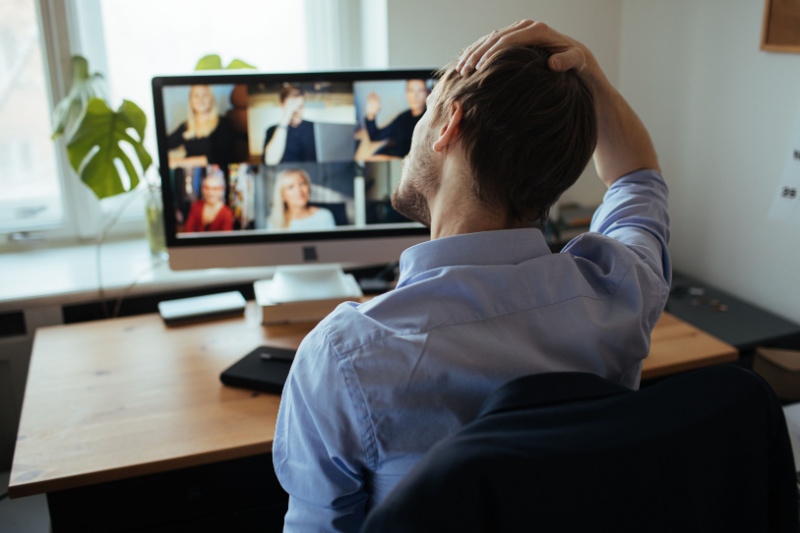
In today’s fast-paced digital age, staying constantly connected online has become the new norm. While the internet has undoubtedly transformed our lives, offering convenience and connectivity, it has also brought about several challenges. From the pressure of maintaining a perfect online image to consuming an overwhelming flow of information, the stress of being online is a growing concern.
Find a balance between your online usage and offline activities and set boundaries on digital platforms. By prioritizing real-life connections and practising mindfulness activities, you can better navigate the digital landscape while safeguarding your mental health.
Disadvantages of the internet
 Here are some of the disadvantages of the internet:
Here are some of the disadvantages of the internet:
- Social isolation:
Excessive internet use, especially social media, can lead to social isolation and reduced real-life interactions. Spending more time online may cause individuals to withdraw from real-life social connections, leading to feelings of loneliness and detachment. Hence, prioritize real over the reel. Focus on real-life relationships to keep the ills of the internet at a distance.
- Disinformation:
The internet has made it easy for misinformation and fake news to spread rapidly. With abundant unverified content, it becomes challenging for users to discern accurate information from false or misleading sources.
- Affects attention span:
We have the attention span of a goldfish. With abundant content available at your fingertips, you may skim through surface-level information rather than delving deep into a subject. This can reduce your ability to concentrate on a task for a long time.
- Lack of sleep:
Social media can be addictive without us realizing it. You often decide to check your social media accounts for just ten minutes before bed, but before you know it, two hours have passed. It has become a common problem among young adults and teenagers, resulting in a severe lack of sleep. Besides the fewer hours of sleep, the quality of sleep is also affected because of the blue light the screens emit, which can affect our sleep cycle. Poor sleep can affect productivity, mood, energy levels, and focus, which can cause more severe health problems or lifestyle conditions in the long run.
- Could be linked to depression:
Excessive social media usage often leads to low self-esteem, as you constantly compare your life to carefully curated representations of others. The culture of presenting only the best aspects of your life can create unrealistic standards, promoting feelings of inadequacy. This constant social comparison can trigger anxiety and depression. It affects our self-esteem and makes us feel like we are not good enough because of failing to meet unrealistic living standards.
- Causes FOMO:
Fear Of Missing Out, more commonly known as FOMO, has become a serious problem since the onset of social media. A study on problematic smartphone use found that participants experienced social anxiety when kept away from social media. The anxiety was caused because the individuals felt they would miss out on some exciting news or event if they didn’t regularly check their phones. The irony is that the more time people spend online, the more likely they will miss out on real-life events.
How to overcome the stress of being online?
Here are some practises that you can incorporate to keep the disadvantages of the internet at bay:
- Pursue a hobby: Staying updated and informed is very important, but you may find yourself lost in a constant stream of news, leading to excess worry and anxiety. While it is a good habit to stay updated on what’s happening around you, excessive consumption of news and misinformation can take a toll on your mental health. Consider exploring personal hobbies like reading books, journaling, writing, gardening or any other creative thing that brings you joy.
- Digital detox: Take regular breaks from the online world by scheduling periods of digital detox. Disconnect from devices and spend quality time engaging in offline activities to rejuvenate.
- Spend time with family: Family time provides an opportunity to foster a sense of belonging and support. Helping with household chores will promote a sense of responsibility and accomplishment. These activities can help you overpower the disadvantages of the internet and social media. A healthy lifestyle will allow you to be fully present in the moment and enjoy meaningful experiences.
- Set clear time limits: Establish specific time limits for online activities for work and leisure. Stick to these limits to prevent excessive screen time and create a healthy balance.
- Curate your online feed: Be selective about the content you consume and the platforms you engage with. Focus on meaningful interactions and avoid spending time on sources contributing to stress and anxiety. Decluttering your social media platforms can also boost your mood.
- Use technology to your advantage: Utilize technology tools to track and manage screen time. Many devices offer features that enable users to set reminders and time limits for specific apps or websites. And if you are browsing through the internet, use it to your advantage to learn a new skill or course.
- Practise mindfulness: Incorporate mindfulness activities into your life. Mindfulness activities can help you stay active, present and happy.
- Try yoga: Incorporate yoga and meditation techniques into your daily routine. These healthy habits can help manage stress, improve concentration, and promote well-being. In addition, yoga and meditation can aid in managing severe health complications like high blood pressure, arthritis and diabetes.
These healthy lifestyle practises can help you avoid the disadvantages of the internet.
Key Takeaways
- The internet can lead to social isolation, sleep deprivation, and a fear of missing out.
- To counter these negative effects, consider pursuing a hobby, taking breaks from digital devices, and spending quality time with family.
- Additionally, establish clear time limits for internet use, curate your online content, and practise mindfulness.
Stay tuned to the Activ Living Community. Keep up to date with the latest health tips and trends through expert videos, podcasts, articles, and much more in nutrition, fitness, mindfulness, and lifestyle conditions like Asthma, Blood Pressure, Cholesterol, and Diabetes.
You may also be interested in the following blogs:
- Stretch More To Stress Less. Reach Your Fitness Goals Faster
- How Can You Practise Mindfulness In The Age Of Social Media?
Popular Searches
How to lower blood pressure | Fruits good for liver | Unhealthy foods | Ragi Benefits | Basal Metabolic Rate | Acupressure points for High Blood Pressure | Ayurvedic medicine for blood pressure | How to control cholesterol at home | Homeopathy for Asthma | Biological Age | Home remedies for TB | Natural beta blockers | Negative effects of internet | Types of walking | Blood pressure calculator | Blood sugar calculator | BMI Calculator





 1800-270-7000
1800-270-7000

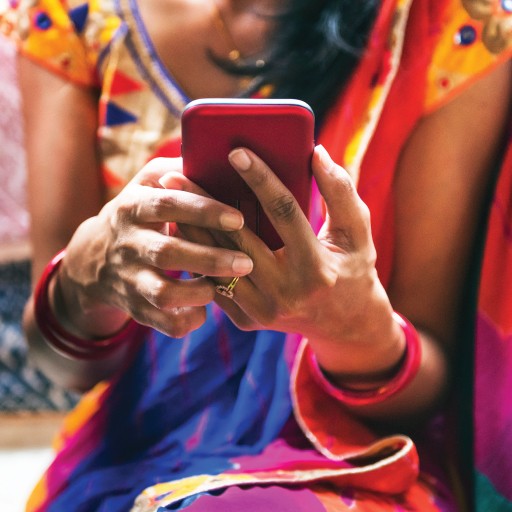







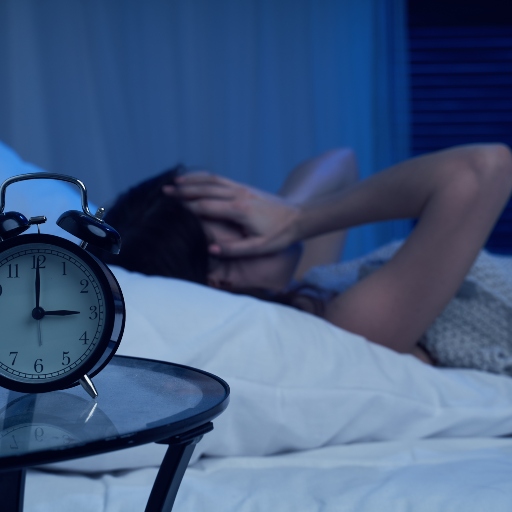


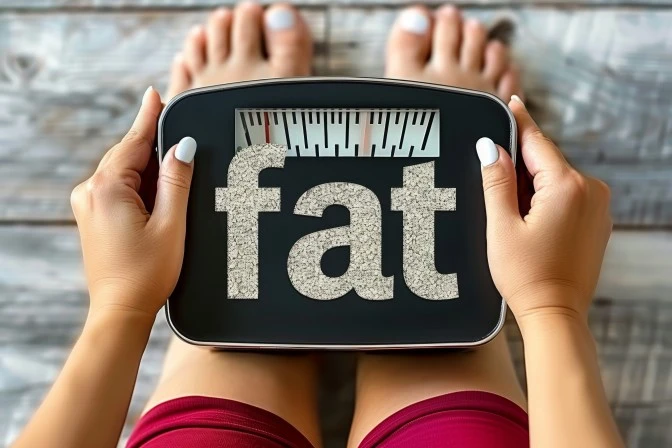
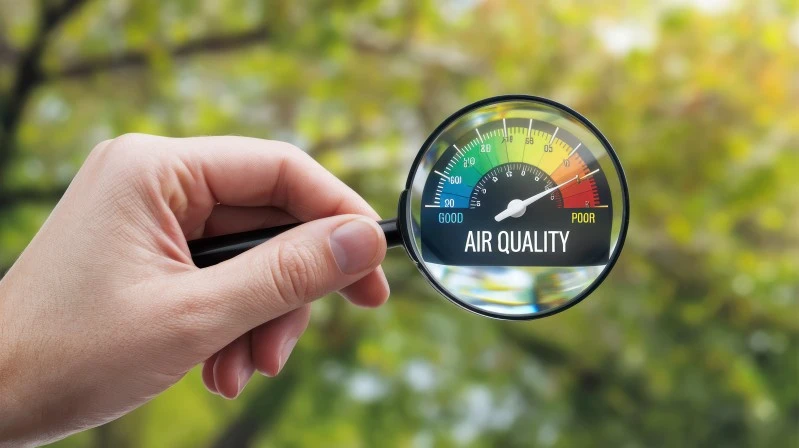

Nice Blog.. Really helps how to remove the addiction of online. Thanks a lot
The internet’s impact on health is concerning, especially with excessive screen time causing issues like eye strain and social isolation. Personally, I find social media distracts me and affects my focus and sleep, which can lead to anxiety and depression. It’s essential to balance our online and offline lives by practicing digital detox and mindfulness. We shouldn’t let technology take over!
Internet use has several disadvantages that can negatively affect our health. Constant access to social networks and online platforms can lead to digital addiction, which in turn generates problems such as anxiety, stress and depression. Overexposure to screens affects sleep, there are times when I get distracted by social networks I don’t realise what time it is and I end up sleeping very little time, we must measure ourselves on the use of the internet because as well as having many benefits, it also affects us in too many ways, we must use it in the best possible way and not get carried away by the bad habits we have.
I totally agree with this interesting article, I think that the internet has been changing our lifestyles and the way we see the world, specially the human body, the internet has distorted the body shape, changing the healthy body for another impossible reality.
I agree with every affirmations in this blog. It’s very worrying to identify with each of the bad things that the internet does in our brains. Lately, I have noticed my poor ability to concentrate on 1 thing. Before, I used to do one thing at a time and I enjoyed it a lot. Now, while I’m watching a movie, at the same time, I’m checking Instagram. Other example is that while I’m cooking or doing homework, I watch videos on TikTok.
The internet has made me very distracted and has created the need to always be doing two things at the same time.
I think I have to work on the attention span I give to each activity and not use the cell phone when it is not necessary.
I consider that one of the most important points of reading is to learn to manage the use of technology and the Internet, not to let the Internet use you, and to efficiently convert the use of the Internet into an advantage, although it can cause many problems it also offers solutions, the detail of this is that we take advantage of it in a bad way, it is undeniable that it causes severe brain damage, but it is up to us if we want to let it cause that damage.
One of the first things we must learn and be autonomous is to control our connectivity time, as mentioned by doing a hobby that causes digital disconnection.
In my opinion, the connection with the real world and everything that surrounds us has not yet been lost.
I agree with the article. While technology keeps us connected and makes life easier, it also leads to issues like addiction, social isolation, and anxiety. The impact on sleep is especially concerning, as many people don’t realize how excessive screen time affects their rest.
I also found the point about concentration interesting. Social media creates unrealistic expectations, and constant distractions make it harder to focus. For example, I often lose focus while watching a series because I end up checking my phone. However, when studying, I concentrate better by keeping my phone out of reach.
Despite these drawbacks, the article provides useful solutions, such as setting screen time limits, practicing mindfulness, and doing a digital detox. It’s a great reminder to find balance between online and real life.
The internet has transformed our lives by providing instant access to information, global connectivity, and new job opportunities. However, it has also created issues such as privacy concerns, addiction, and misinformation. The key is to use it responsibly, seeking a balance between its benefits and its negative effects.
It’s very important the information provided in the blog, I agree completely specially when it talks about the Fear Of Missing Out (FOMO).
FOMO doesn’t allow us live our lives, it constantly makes us want other things. It makes us believe that someone else is having better experiences than ours or it’s having a best life.
I think this is more frequently on Instagram, because the people always share the best experiences, trips, achieves. They never post their bad days
This article has a lot of truths, and I think that modern life already has this stress always, I think that because of how life is today, it is very difficult to leave it, I think that we can leave it for a moment, but the instant dopamine reward is not given by another hobby, and this will make them return to those practices that give that instant reward.
The article talks about an important problem today: the stress of being online all the time. Technology helps us communicate and find information easily, but it also creates problems. Many people feel pressure to look perfect on social media, and too much information can be stressful. Also, spending too much time on screens can be bad for our health. The suggested strategies, like taking breaks from the internet and limiting screen time. It is important to find a balance between online and real life to feel better.
The blog is very interesting, these days we use the internet a lot. For example, in my daily life I have to be online most of the day. We should begin to stop bad habits that damage our health and especially stop using the internet so much.
As a student and young person who works all day on the computer, I agree with the post, the Internet is a very useful way to work, learn and also as a way to communicate with family or friends who stay away from us, without forgetting that in reality, after the pandemic, it broke the ability to concentrate on what really matters, it began to be more of a distraction and the bad things began.
The best thing is to gradually resume old habits of coexistence and take advantage of the advantages of the Internet without forgetting the damage it can cause us.
I never really thought about how stressful being online all the time can be, but this article made me realize how true it is. We spend hours checking social media, replying to messages, and constantly seeing notifications, and that can make us anxious without even noticing. I found it interesting how it talks about the pressure to always be available and compare ourselves to others. I think it’s super important to set boundaries and find a balance so that technology doesn’t end up affecting our mental health.
The article effectively highlights the downsides of excessive internet use, such as social isolation, misinformation, and poor sleep habits. It also provides useful solutions like digital detox, setting time limits, and prioritizing real-life connections. While it covers the negative impacts well, it would be beneficial to also discuss how technology can be used positively, such as for education and personal growth. Finding a balance between online and offline life is key to maintaining mental well-being.
Overall, it’s a helpful and insightful read.
I’m shocked by the article, I didn’t know all the consequences of the disadvantages of the internet. Mental health is the most important thing for people, and having sleep problems, depression, or attention issues also decreases our productivity day by day. The article helps us identify our problems with bad habits, and that is the first step to eliminating them. Moreover, it provides us with some practices to use the internet in a better way or reduce excessive usage, such as doing yoga or setting time limits.
In conclusion, technological advances are inevitable, but the bad habits they create can be avoided or transformed into something beneficial for us, it all depends on us.
I agree with the article. I have felt that after the pandemic, having the "opportunity" to be online 24/7 or using apps like TikTok or Facebook has led us to a sedentary lifestyle. In the long run, this can cause attention problems and even lead to depression. In my opinion, as the article said, one of the best things we can do is have a hobby that benefits us both physically and mentally.
I never really thought about how stressful being online all the time can be, but this article made me realize how true it is. We spend hours checking social media, replying to messages, and constantly seeing notifications, and that can make us anxious without even noticing. I found it interesting how it talks about the pressure to always be available and compare ourselves to others. I think it’s super important to set boundaries and find a balance so that technology doesn’t end up affecting our mental health
This article does a great job outlining both the psychological and physical drawbacks of excessive internet use while offering practical solutions. It highlights key issues like social isolation, misinformation, reduced attention span, and the mental health impact of constant social comparison. The solutions, such as digital detoxing, mindfulness, and setting screen time limits, are valuable and actionable.
However, while the internet has its downsides, it’s also a powerful tool for learning, creativity, and connection. Instead of viewing it solely as a problem, a balanced approach where we consciously control our online habits might be the best way forward.
This article is very interesting because it talks about the stress of being online I think many people feel this way because they use the internet all the time, social media and notifications can be very distracting and sometimes we don’t even notice how much time we spend on our phones. I have experienced this too especially when I use my phone before sleeping and then I can’t rest well. I believe it is important to take breaks from screens and enjoy time offline to feel better
I think that being constantly in front of the internet and all the devices that surround it is something that cannot be avoided and you have to live with it, knowing how to cope with it and not feeling that it is something overwhelming.
As the article says, doing activities that distract us and keep us in good health, not relapsing into a life full of technological hobbies making our life become intoxicated in that world, since we used to have a simple and mesmerizing routine like the ease that the internet gives, but sometimes trying to do new things outside of the internet and devices makes for a healthier life, full of peace.
The text explains the disadvantages of the internet, as social isolation, lack of sleep, and mental health problems.How being online too much can be harmful. I think we should follow the advice given, like taking digital detoxes, setting time limits, and practicing mindfulness. These tips can help us have a healthier balance between the online and real world.
The article effectively highlights the downsides of excessive internet use, such as social isolation, misinformation, and poor sleep habits. It also provides useful solutions like digital detox, setting time limits, and prioritizing real-life connections. While it covers the negative impacts well, it would be beneficial to also discuss how technology can be used positively, such as for education and personal growth. Finding a balance between online and offline life is key to maintaining mental well-being. Overall, it’s an insightful and thought-provoking read.
The article talks about the bad effects of using the internet too much. In the actuallity, this is a big problem. The internet helps us stay connected and find information, but using it too much can cause loneliness, stress, and trouble focusing. Social media can be addictive and may harm sleep, self-esteem, and real-life relationships. For this, the article gives simple tips, for example: limit screen time, do offline activities, and practice mindfulness. The most important thing is balance—use technology to help your life, not control it. So the internet is very important for us but we need to have more control.
I agree with the article, recently the new internet actualization can help us with different things like, when you need to find some information, internet can help us. But at same this has differents disadvantages like, you stop to pay attention about different things, you stop sleeping and in some cases this causes distance with your family.
That’s why I recommend you to start doing outdoor activities like yoga, zumba, start running and one thing that I really like go hiking, is an activity that I recommend because it can help you to reconnect with the nature and is really beautiful to see differents landscapes. is indispensable live with internet but it was in us to learn to separate the resolve to the involved dependence about the internet.
I agree in part with the article, in daily life and especially today we need internet, if or if, either to do homework, work, etc.. But nowadays many people are already abusing the internet, as it is said here in this article, it causes us stress, one of the most stressful things on the internet, and if you are a content creator like me, are the comments, many of them are cruel and because people are very cruel and have no sensitivity to tell you what they think of your photos or thoughts.
So I recommend you to try to balance your life with the internet and the real world, don’t stay locked in your room alone with your computer, go out with your friends and family, do different activities, dance, have fun, etc. The internet is good , but like everything in this life has bad things , so balance it , watch videos , post your photos that you like .
This article explains the negative impact of excessive internet and social media use on our mental health and well-being. Despite the advantages that constant connectivity offers, such as convenience and accessibility to information, the disadvantages are notable and affect our quality of life.
One of the key points that the article highlights is social isolation. While social media allows us to connect with people around the world, it can also promote a disconnection from family relationships. One of the key recommendations is digital detox, which encourages taking regular breaks from the digital environment. This disconnection allows us to focus on activities such as reading, playing sports or sharing time with family. Spending time with loved ones is essential to maintaining healthy relationships and improving our mental well-being.